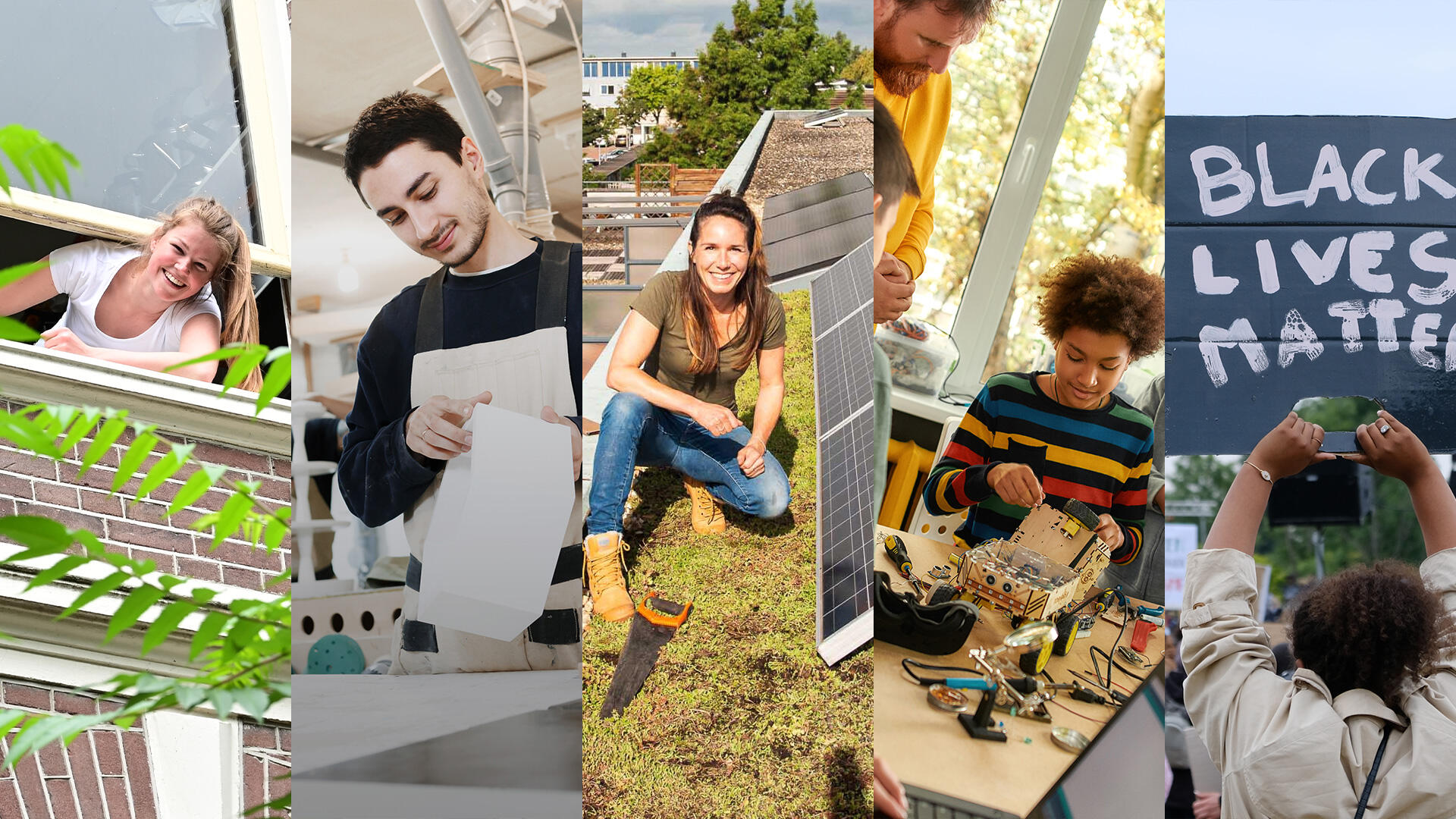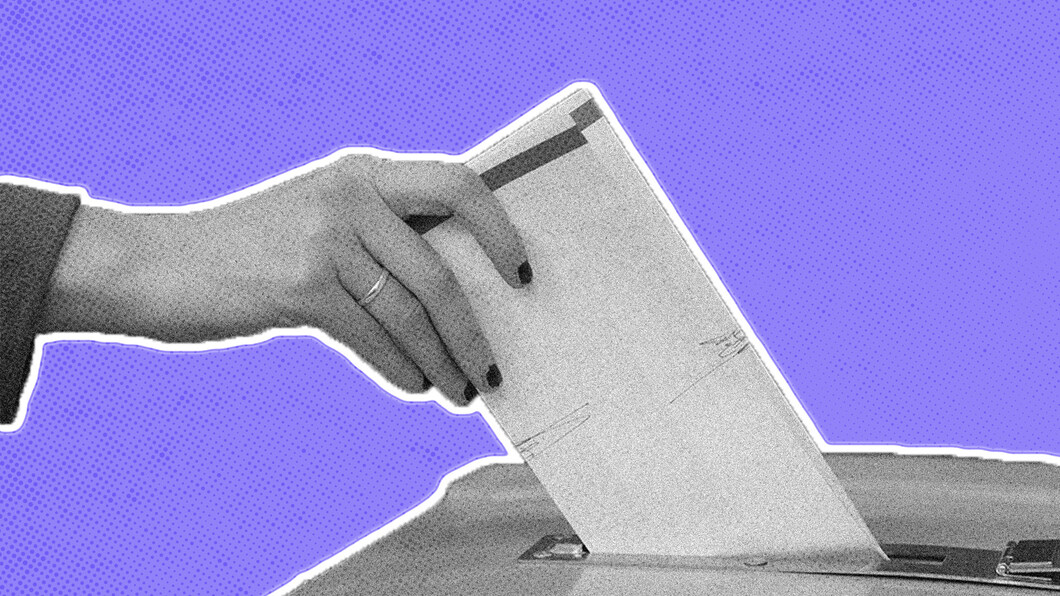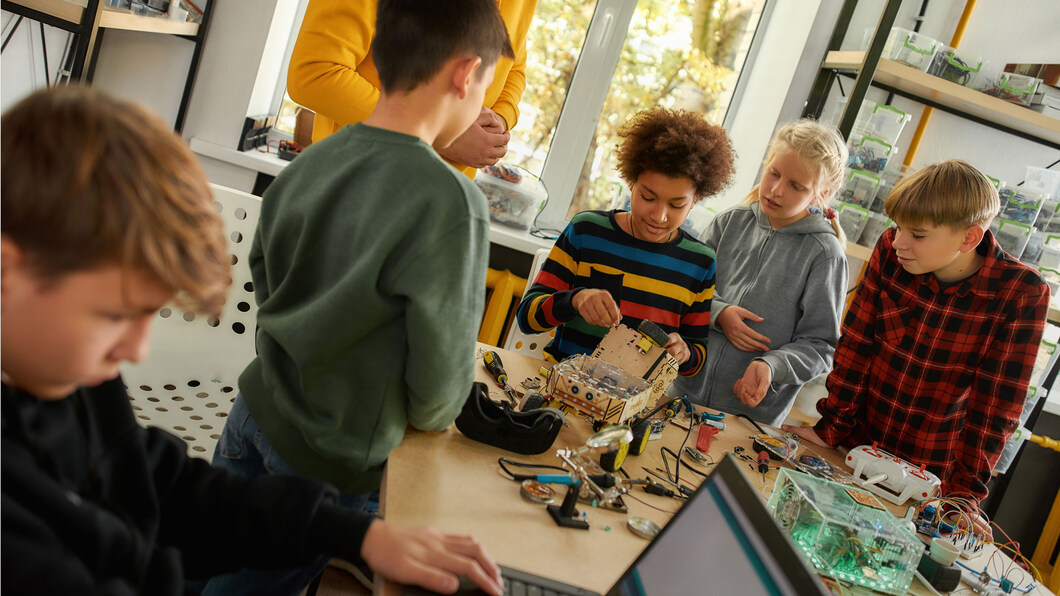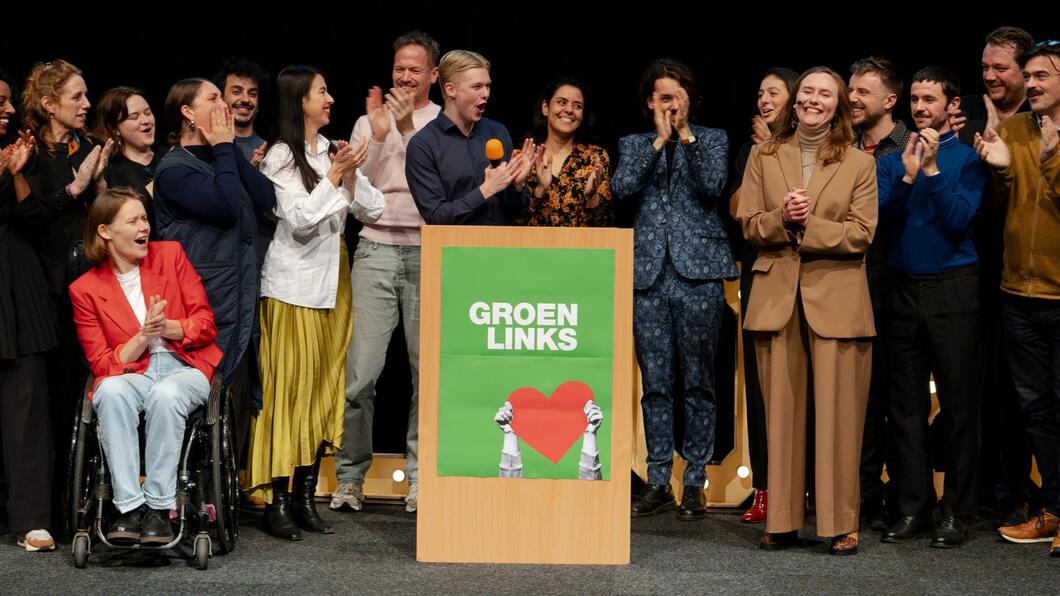To make this happen, we need your support on Election Day, March 16th. Here are some of the highlights of our accomplishments over the past four years:
Climate change
Since the last elections, Amsterdam has become a greener and cleaner city with fewer cars and more park spaces. In line with this fight against climate change, Amsterdam has adopted a circular economy model for municipal development and established a citizens’ focus group on climate.
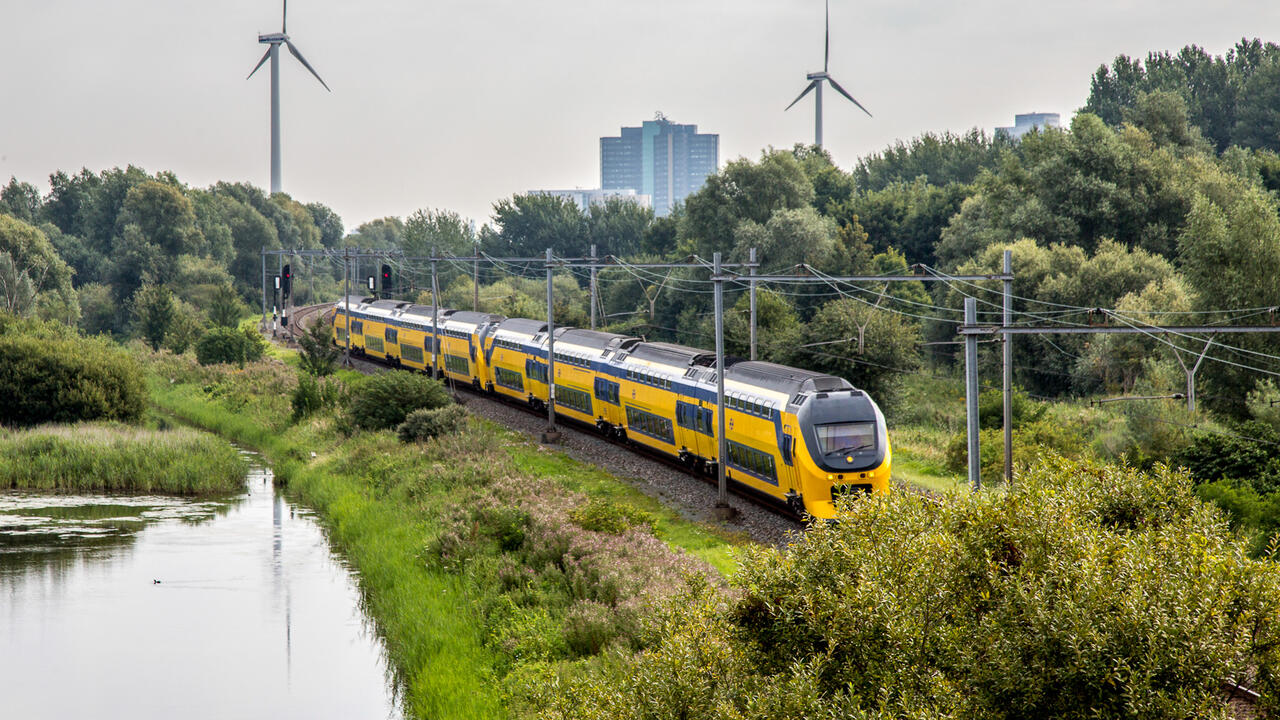
- Green neighbourhoods. We have made Amsterdam greener through more environmentally friendly neighbourhoods such as Sixhaven, and by transforming sections of the Wibautstraat into a green oasis. In 2020, 1569 trees were planted in Amsterdam, far more than were cut down.
- Car free city. We have limited parking spaces in the city, with 10,000 former units now becoming play areas and green spaces. We have also put more 30 km/h speed limits on city roads and have worked to limit mopeds and scooters from bicycle paths.
- Progressive climate targets. Amsterdam has established a Roadmap to become a climate-neutral city in 2050. The city has already reduced CO2 emissions by 15% and has increased the number of solar panels in the city by 70%. Amsterdam now has half a million solar panels that provide 60,000 households with clean electricity. We have also banned fossil-friendly advertising in the city.
- Circular model for development. Amsterdam has adopted a circular economy model which aims to cut the use of new raw materials by 50% by 2030, achieving a completely circular city by 2050. This follows the logic of the donut model for a fairer and greener Amsterdam. In the Amsterdamse poort, local organic industrial waste is being collected using electric transport and converted into energy and compost in a bio-digester. This energy is then supplied to the Johan Cruijff Arena.
- Citizens’ focus group on climate. The City Council has convened a Citizens’ focus group on climate to ensure that Amsterdam stays on track with its ambitious environmental targets and that residents show sufficient support for the measures necessary to do so.
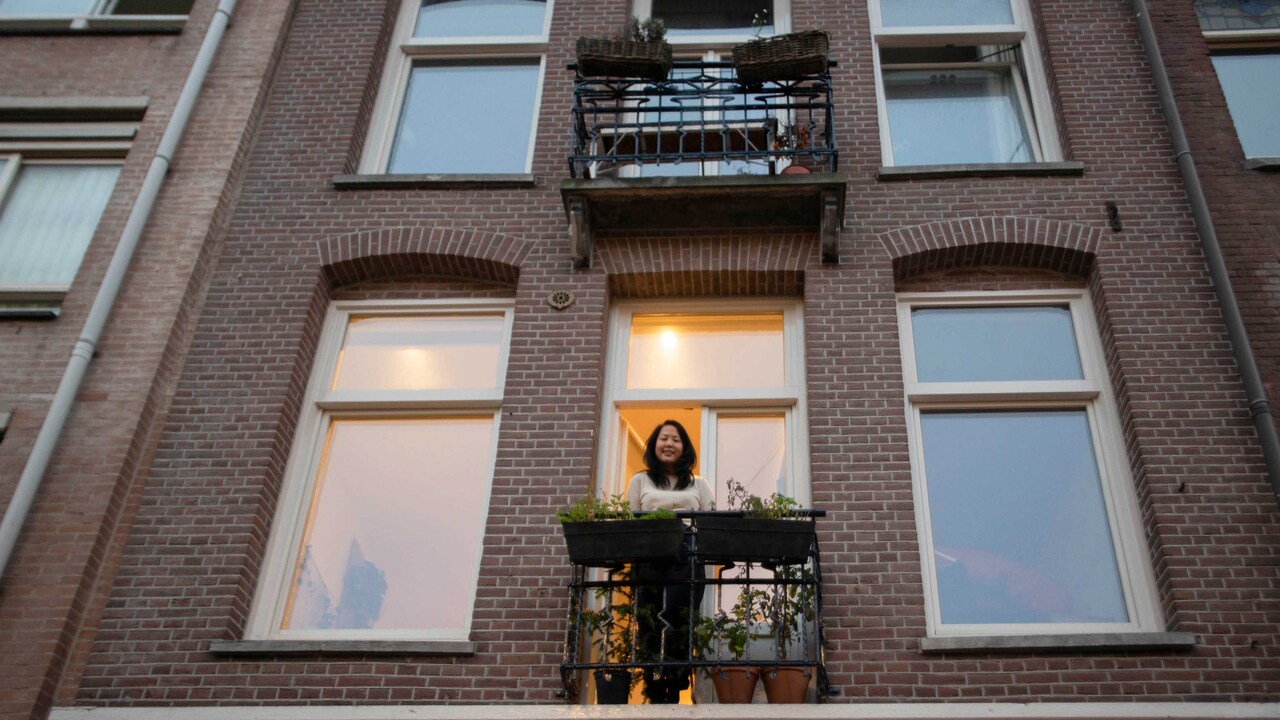
Affordable Housing
Since the last election, more affordable homes have been built for low and middle-income households, and the number of social houses sold has halved. This has increased the power of local residents over speculative investors. For the first time, Airbnb holiday rentals, and excessive fragmentation of apartments, have been tackled in order to preserve the quality of life for local residents.
- Limiting property investors. Amsterdam was the first city in the Netherlands to introduce a ban on letting newly purchased homes. This will require anyone buying a home Amsterdam worth 512,000 euros or less to live in them for four years before being allowed to rent them out. This prevents investors from driving up prices so middle or low income residents can no longer afford them.
- Building to meet demand. Amsterdam has made ambitious plans to build record amounts of housing throughout the city every year (7500 per year on average), including new homes and mid-market rental units. The city has secured a loan fund of 50 million euros to make 13 new housing projects possible in the coming years, including more social housing.
- Limiting single unit rentals. We have taken action against the fragmentation of rental apartments. This limits excessive power landlords have over tenants, keep prices in check and protects tenancy rights.
- Increased options for the homeless. Amsterdam has increased the number of shelters for the homeless, including keeping winter shelters open all year round and making it easier to apply for a postal address.
- Limiting tourist influx. We have worked on affordable housing by preventing the city from being overly stressed by mass tourism. We have installed a strict limit on establishing new hotels and have limited excessive holiday rentals within Amsterdam, prohibiting the use of Airbnb in busy zones.
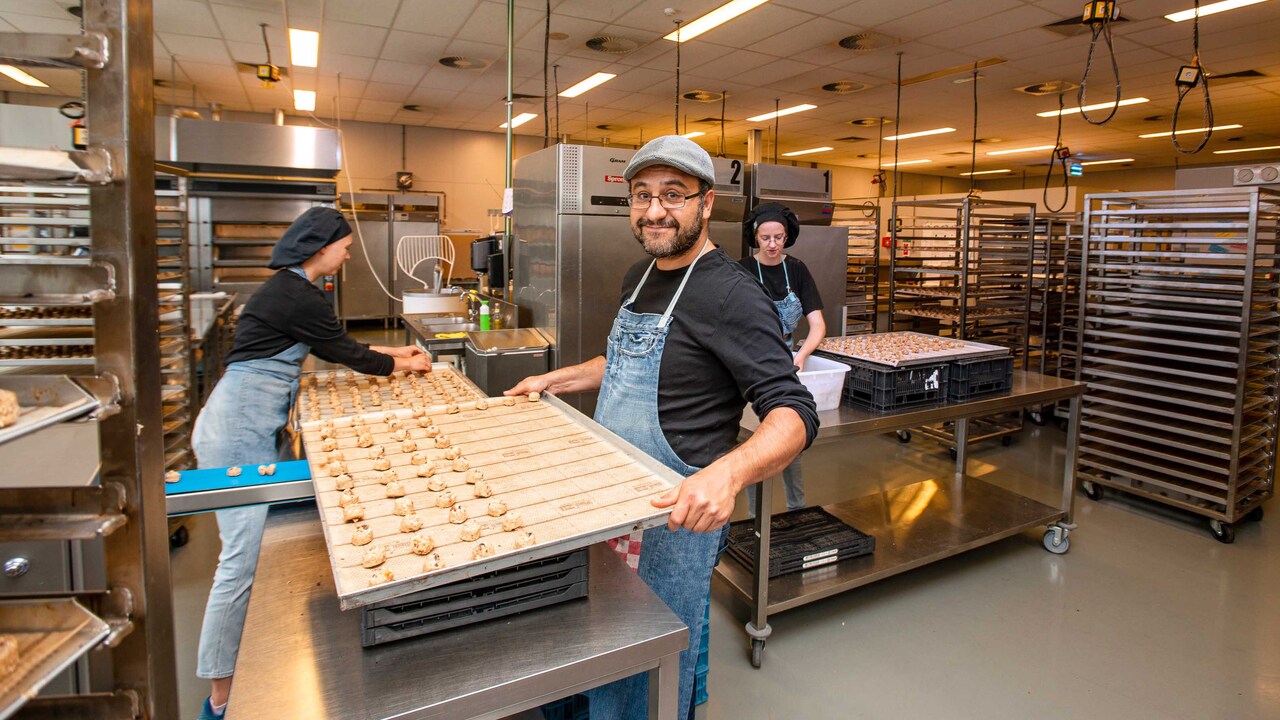
Living Wages and Economic Opportunities
Since the last election, we have made efforts to increase employment, establish a higher living wage, introduce more humane standards to the city’s debt system and strive for a more flexible approach to social security. This helps all Amsterdammers share in the economic growth of the city.
- Debt Relief. We have initiated a plan to take over debts of young residents. The municipality negotiates with the creditors about debt cancellation and repayment arrangements. Amsterdam has joined the “schuldeiserscoalitie,” a coalition supporting residents in preventing and overcoming debt.
- Creating more and better jobs. Amsterdam is working on the Green New Deal that aims to establish a strong economy where people can find work with fair pay and good working conditions. We have established an employment plan in Zuidoost, as well as in Nieuw-West, which has already seen 250 inhabitants receive jobs.
- Improving social security. We have created a monthly bonus for those working while receiving social benefits and continue to see positive results from this initiative. Additionally, we have ensured that, from now on, the municipality itself will pay for errors in the social security application process, instead of the households impacted by the error.
- Community Wealth Building. We have introduced a radical approach to municipal economics. Citizens, businesses and city councilors are working together to enhance fair and locally anchored economic benefits in neighbourhoods where significant profits are generated. We have already seen positive results from this plan in Zuid-Oost.
Equality and Inclusion
Amsterdam is a city that stands for inclusiveness. Since the last election we have fought discrimination, confronted historic legacies and have promoted equality and inclusivity throughout the city.
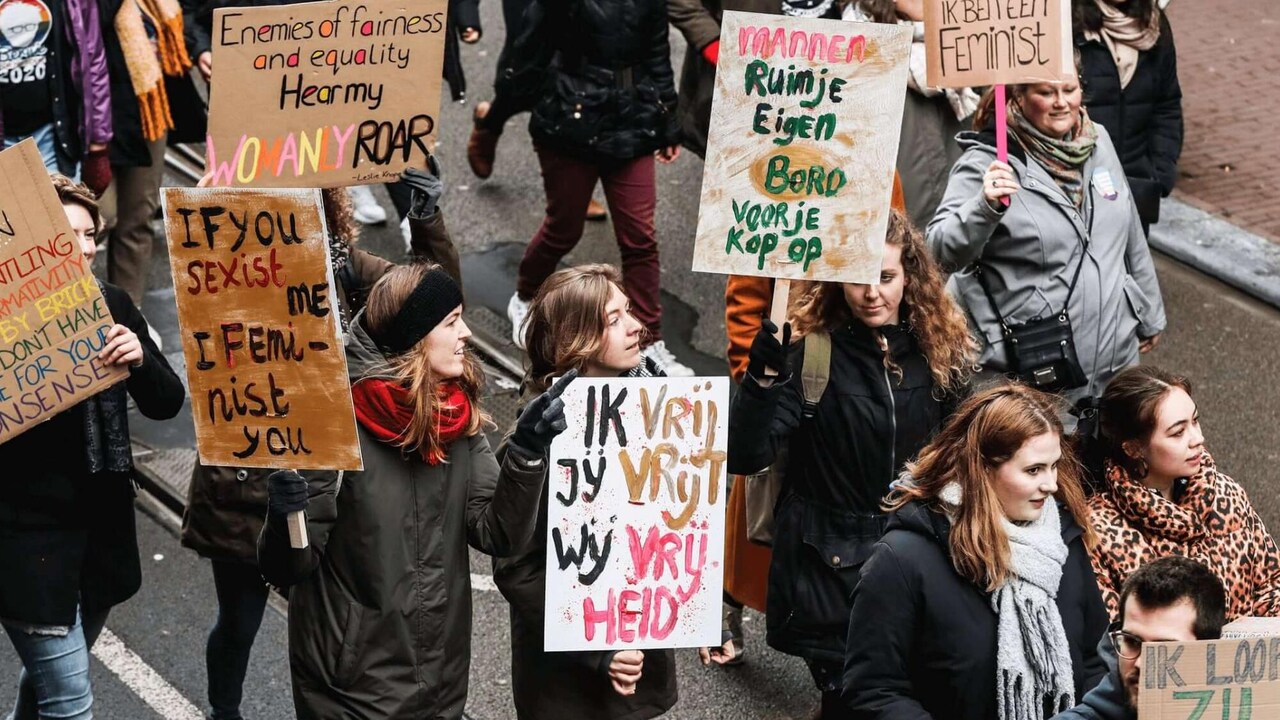
- Amsterdam vs slavery. We have commissioned research into the role that the Amsterdam City Council has played in the commercial system of colonial slavery and the worldwide trade in enslaved people, the results of which have been made available for free to all residents. Amsterdam has apologised for its role in the system of colonial slavery and a slavery museum is being set up to teach about that past.
- Fighting racism. We have continued to fight discrimination and racism within the labour market and in the entertainment and nightlife sectors. Amsterdam has taken action on executing the Zwart Manifest (Black Manifesto) to enhance equality between the city’s residents.
- Standing for inclusiveness. Amsterdam has worked together with LGBTIQ+ communities on the realization of the Regenbooghuis (Rainbow House). We continue to work on implementing the Gender Equality Memorandum, and have opened the first point of legal advice for women in Bos en Lommer.
- Equal opportunities in education. We have committed more money to increasing equality in education and to provide all children with equal opportunities. For children in a number of neighbourhoods in Zuidoost, we have started with intensive tutoring and have been impressed with the results.
